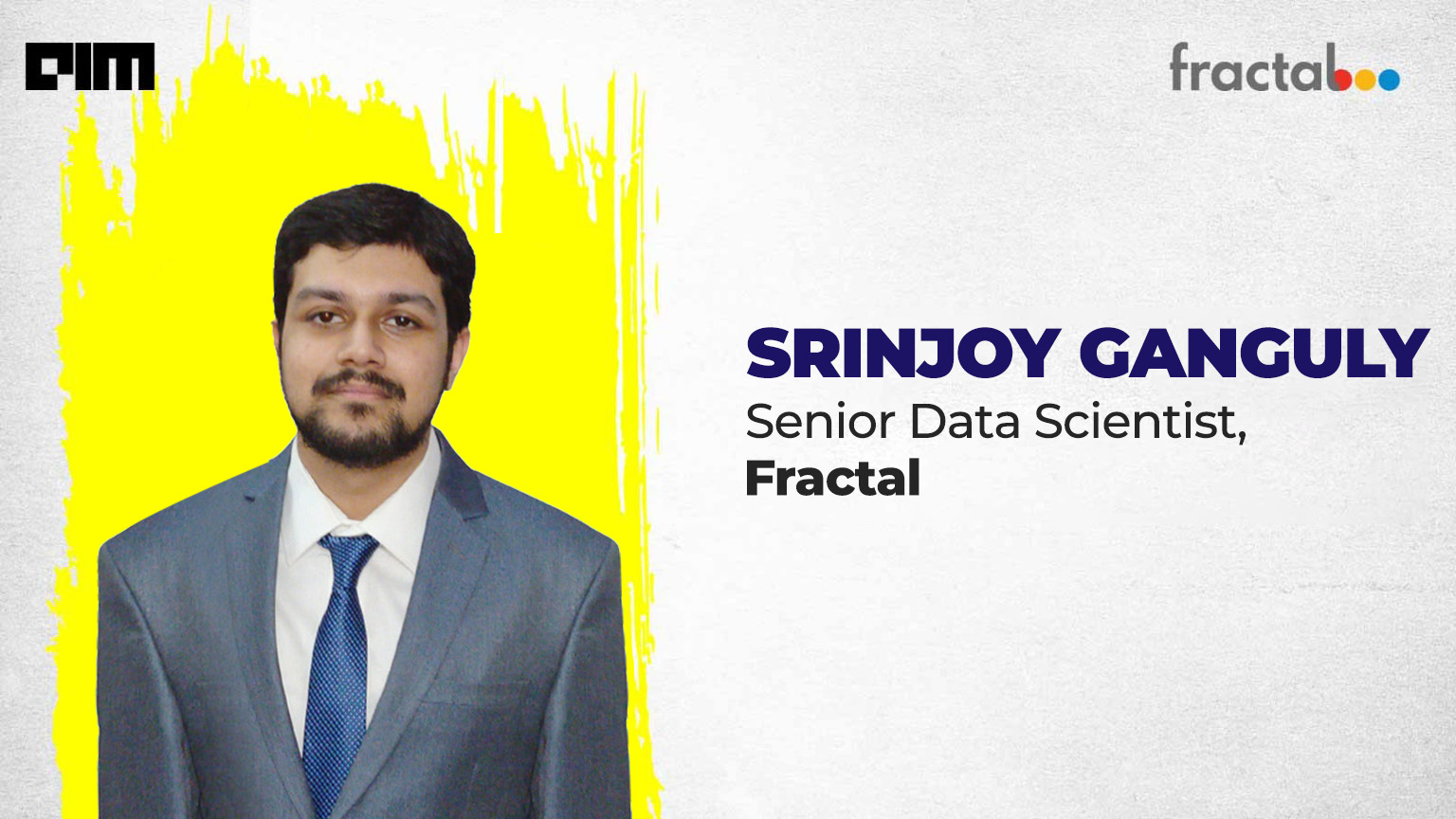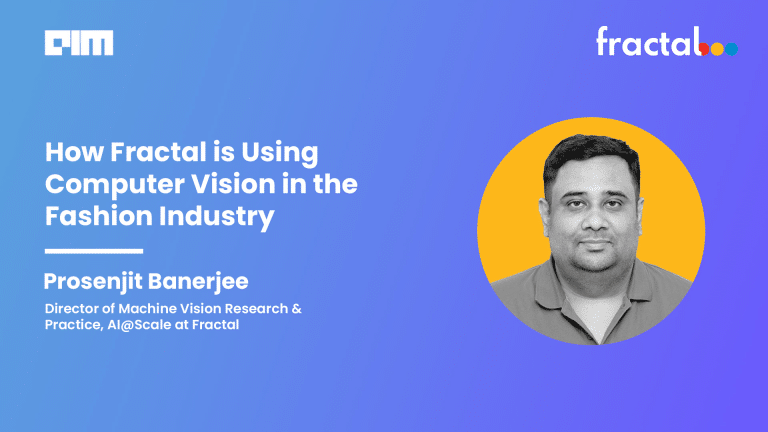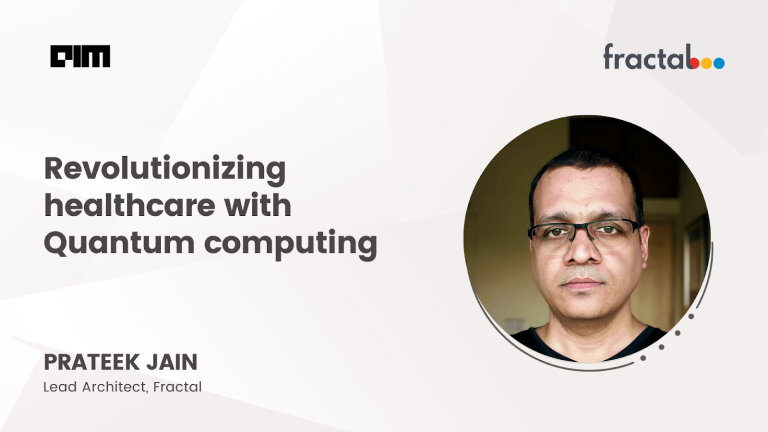Quantum computing is a game-changing technology with the potential to disrupt fields such as computational science, artificial intelligence, machine learning, data science, and analytics. Quantum devices are our best bet to move from CPU and GPU cores to optimise high-performance computing to generate insights from the ever-growing Big Data. The market cap of the domain is expected to reach USD 1,765 million by 2026 from USD 472 million in 2021, at a CAGR of 30.2% during the forecast period. Major companies like Google and IBM commit huge resources to develop their quantum capabilities.
Analytics India Magazine caught up with Srinjoy Ganguly, senior data scientist at Fractal, to understand the scope and future of quantum computing.
AIM: What is the current state of quantum computing?
Srinjoy Ganguly: The field of quantum computing was popularised by Richard Feynman in 1982 when he mentioned it in a fierce speech. He said that nature works in a non-classic way, and we need to understand quantum mechanics to understand how electrons, protons, neutrons, and everything beyond, work.
Quantum computing has seen a major boost in the last 10-15 years. Companies worldwide are investing in various quantum technologies and making their quantum hardware. D-Wave is one major pure-play quantum computing company enabling quantum-based processors. Today, we are in the nisq (noisy intermediate-scale quantum) era, working on 100-qubit quantum systems. They may not deliver perfect results (read noisy and erroneous), but you can still work with them. However, we are still very far from achieving the maturity level to have a fully fault-tolerant quantum computer.
Big consultancy firms like Boston Consulting Group, Gartner, and McKinsey have estimated the nisq era would last for the next five years. Only then we may enter the fault-tolerant quantum computing era and have 1000-qubit quantum systems. After that, it would take 15 years more to achieve the million qubit milestone. That said, a lot of research and development is happening in both the algorithmic and hardware space, which is a good sign.
AIM: How long before we see the mass adoption of quantum computing?
Srinjoy Ganguly: At present, we cannot perform operations on a qubit that lasts more than a few microseconds. Because of this, the quantum data gets lost, making it difficult to be used for AI or other general tasks. Researchers are working on QRAM, a computing unit that will allow storing quantum states for several hours– a significant challenge we are facing today. However, it may take a decade, at least, to achieve this. Only then we can expect more widespread adoption of quantum computing. Also for a quantum computer to be universally applicable, we need the quantum computer designs to be scalable up to 100s of 1000s or millions of logical qubits.
AIM: What are the biggest roadblocks to quantum computing innovation?
Srinjoy Ganguly: Skill deficiency is not only present in our company or in India but prevalent worldwide. For example, some companies have already built their quantum hardware. But operating this technology itself needs niche skills in fields like control electronics, which not many may possess.
That said, there have been many resources launched by leading companies such as IBM, Google, Xanadu, etc. In addition, various conferences and hackathons are conducted to bring together academia and industry to collaborate, form teams and solve real-world based applications.
I am part of IBM’s Quantum Educators Network, under which trainers like me mentor students worldwide. In addition, I have designed my own Udemy course pursued by 30,000 students.
On the hardware side of things, companies like IBM are offering hardware open source packages. This helps independent researchers and smaller companies to simulate hardware in their own computers and opens up a whole world of possibilities for hardware enthusiasts.
IISc Bangalore has announced a Master’s course in quantum computing, and other prestigious institutions are expected to follow suit. We may soon have MBA courses in quantum computing, similar to the management courses specifically for analytics-related jobs. Students would be trained to manage quantum teams and how this sophisticated technology works.
AIM: Tell us about Fractal’s current work in the quantum computing domain.
Srinjoy Ganguly: We are broadly focusing on two domains. One is quantum chemistry and its application in drug discovery and material sciences. The second domain is quantum finance.
In the case of quantum chemistry, we take the molecular simulation point of view. We have done experimentation and benchmarking results simulating the molecular interactions between a subset of HIV and hypothetical antiretroviral molecules. Currently, we are also executing research and experience of protein folding prediction on D-wave. We are also working on simulating exosite binding peptides for example Alzheimer’s as one enzyme using various variational quantum algorithms, utilising open-source quantum systems & libraries and Qiskit. We are also exploring and benchmarking results for larger chain neuropeptides in their simulation and experiments.
We have done a case study on asset pricing prediction for quantum finance. We have achieved fruitful results in terms of the time taken to process. However, it is still very challenging as the available quantum processors are still very small and noisy.
AIM: What’s next for Fractal in terms of quantum computing?
Srinjoy Ganguly: The current goal of our company is to accelerate cutting edge research in the field of quantum computing and its various applications in quantum ML and AI space. We are focusing primarily on research, publishing papers, technical reports, and IP building to contribute to the global quantum research ecosystem by exploring and innovating some novel algorithmic approaches. In addition, we want to contribute to building scalable quantum systems, and once we have those novel approaches and scalable quantum systems, then they can be applied to various other applications as well. We are also looking at Quantum NLP, which has the capability to decipher meaning from sentences by the technique of compositionality and category theory.
We are also in discussion with various academic institutes in India and abroad. The merging or a collaboration of industry and academia will accelerate the quantum field. We already have dedicated collaboration with Amazon Braket for large-scale quantum applications and the future.
We want to utilise novel algorithms to generate results related to molecule simulation protein folding predictions and apply new quantum machine learning techniques to quantum chemistry problems such as density functional theory. So that’s the future we are envisioning.




















































































